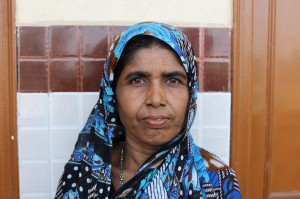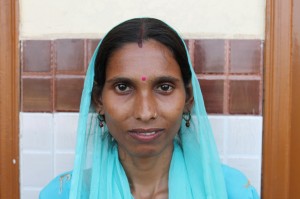Sitting in a Delhi metro station, I wait for one of Aakar Innovations’ founders before we travel to our new production unit in Ghazipur. I smile to myself, reflecting on the jumble of contradictions in front of me. You must be patient here because everyone runs on IST (Indian Stretchable Time). Yet you must also be impatient because nothing gets done if you wait your turn and let aunties elbow their way in front of you. You must constantly be aware of the bustle of cars and buses and rickshaws and cows and people so you don’t get crushed, but your eyes should never settle too long on the beggars in the street, or the trash in the gutter.
Sombodhi arrived an hour after me. The traffic was terrible because the Chinese Prime Minister was in town. A city of 25 million jammed into a standstill. He kept walking to the side of the platform and motioned for me to follow. It reminded me of the day we first met, when he knocked on my apartment door in Ahmedabad, with a quick head nod and hello, followed by a fluster to turn on the fan, as one of his phones rang. “I run a part-time call center if you haven’t noticed.” We had four days to get me up to speed before he left for Singapore. We were able to catch up over steaming dhosas and late-night cups of chai, in between disruptions requiring his constant attention. I learned that Aakar is going through its biggest transition yet. My role was to help pick up the missing pieces along the way. I write grant proposals, manage social media, run the crowdfunding campaign, and try to keep up. Similar to how one must approach India as a whole, I accept that greater forces are at work outside of my control. I am lucky to be along for the ride.
Fast forward four weeks, it is hard to believe that after an hour on the metro, we are still in Delhi, whirring past the countless humans stacked on top of one another in concrete blocks and tin roofed shacks. This city pockets every facet of the human condition, with no holds barred. We reach the production unit where a few of our machines line the wall, and women from the jugghi across the road are learning how to make Aakar’s sanitary pads, while I take notes to put into their new training manual. I interview a few of the quiet, modest women with my camera, in the hopes of weaving together a patchwork that will resonate and provoke the rest of you out there in the virtual landscapes.
Between Ahmedabad and Delhi, I spent a few weeks in Bangalore working with YourStory, India’s media platform for entrepreneurs, where I was confronted with the realities of the women around me. I wrote a few articles for them, with emphasis on shattering the silence around gender-based discrimination in India, and advocating for the work Aakar will do to address the taboos.
Indian feminists try to counterweigh the repressed souls of daughters of India who are shackled to the sacrilege of their flesh. They speak for the girls forced to become servants at age 7, whose only worth is the money they bring home for their dowry. And for the girls who drop out of school because they will marry after reaching puberty. And for the girls who are told they are too dark or too ugly to be considered human. And for the girls who are told they are cursed because they bleed every month. The stories are never ending. Their perpetual repression is subtly reflected in every minute of every day, entrenched in cultural norms. I feel a fraction of this discomfort as a white woman in India; there is no way to avoid being a spectacle. In one sense, I think it is important to know what it is like to be a minority, to be an outsider. That discomfort is humbling, and raises profound questions about my own reality and sense of self. And yet at the same time, I resent the fact that I feel shamed by other people’s eyes. I resent the fact that I am immediately objectified for my skin, and sexualized for my gender. But this is still nothing in comparison to the lifetime of disgrace many women in India face.
When collecting the stories of the women I meet, my mind circles back to the reasons why I am here, how incredibly fortunate I am to have grown up with the privilege of expressing myself, and how many millions of women and minorities aren’t given a chance at even a shred of that dignity. In providing economic opportunities to women in rural India, Aakar is already offering them power they did not have access to before. For my own contribution, I hope I can amplify the voices of these underrepresented women and further enable them to take ownership of their own lives.
Maya Carlson is currently on co-op with Aakar Innovations, a social business that manufactures high-quality, compostable, sanitary pads to girls and women in rural India.




